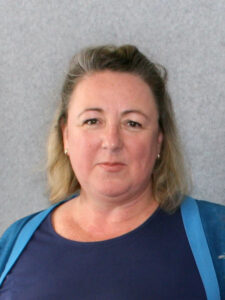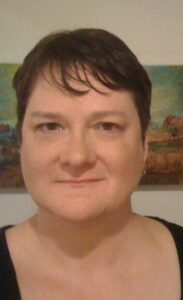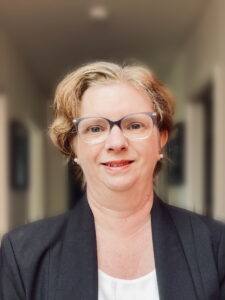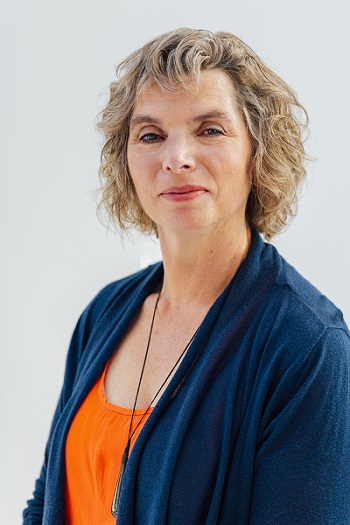
“It almost seems to slightly denigrate the position,” said Tairāwhiti nurse practitioner (NP) Natasha Ashworth, a committee member of NZNO’s Nursing Leadership Section.
‘It’s not a question of one being superior to the other. We practise side by side.’
While she did not believe RNZCGP intended to insult NPs, “there is a slight sense of trying to downplay the role that is hard to ignore”.
RNZCGP has released a revised position statement, ‘nurse practitioners’ contribution to general practice teams’ for its members, which it says “clarifies the difference” between NPs and specialist general practitioners.
The revision follows angry reaction to its initial statement, published a month ago, which stated NPs needed just six years’ training against 11 years for GPs.
In reality, it took at least nine years to qualify as an NP, and required a clinical masters’ degree, Nursing Council chief executive Catherine Byrne told Kaitiaki. But the average practising experience of the country’s 621 NPs was far longer — 27 years. Just two had achieved it in nine, she said.
‘It undermines and devalues the role of NPs — perhaps based on a misapprehension that NPs . . . are working under the direction, delegation or supervision of GPs — which is NOT the case.’
Nurse Practitioners NZ (NPNZ) and the College of Nurses’ Aotearoa asked RNZCGP to withdraw and correct its statement, offering to work with them on a more accurate one.

But their offer was not “effectively” taken up, NPNZ chair Sandra Oster said. At a meeting, RNZCGP agreed to correct the training requirements “but not the text or intent of the document”.
The revised statement failed to reflect the true scope of NP practice and was “disappointing”, Oster said.
“They believe they’re being collaborative with this document, but the wording implies a dependent relationship that doesn’t exist,” Oster told Kaitiaki. “The way it’s written implies NPs work under the direction of a GP . . . But that doesn’t reflect the autonomous scope of practice.”
NPNZ would now be developing its own guidelines in response, to more accurately reflect NPs’ scope, Oster said.
“It’s not a question of one being superior to the other. We practise side by side . . . So what we would say is that we practise autonomously and in collaboration, because NPs want to collaborate with GPs.”
‘When you think about our world view, we’ve done 11 years of training, we also know the volume and range of things that turn up on our doorstep and we know about the business of running a general practice.’
‘Limited understanding’ of NP role
College of Nurses’ Aotearoa executive director Kate Weston said the statement “devalues” NPs and showed “limited understanding of the scope and capability of the NP role”.

“It undermines and devalues the role of NPs — perhaps based on a misapprehension that NPs and, for that matter, RNs, are working under the direction, delegation or supervision of GPs — which is NOT the case,” Weston said, in a joint statement with NPNZ.
Under the Health Practitioners Competency Assurance Act, NPs — like GPs — are accountable for their own practice, Weston said.
Seeking to “compare and contrast” the role of NPs and GPs missed the point of the Pae Ora health reforms, which were to provide a choice of quality health services, Weston said.
Ashworth — who was a nurse for 23 years before becoming an NP three years ago — said it “comes back to this masculine-dominated versus female-dominated professions — but we are there to be considered on a level with our colleagues. Each has their own skill set of equal and complementary value”.
‘It comes back to this masculine-dominated versus female-dominated professions.’
She did not feel the statement represented the way NPs were treated by colleagues, including GPs. “But I do think it’s representative of those differences of parity and equality that we see all the time as nurses and are trying to address.”
‘No obligation’ says GP leader

RNZCGP president Samantha Murton said the guidelines were intended for its 5000-plus members, and placed no obligation on NPs. “They don’t need to check everything with a GP, but they just need to have access to a GP,” she told Kaitiaki.
“This is our expectation on a general practice, in how they will look after all their people in general practice – that a NP has access to a GP . . . That’s our expectation that our members won’t put an NP in an invidious, unsafe or unsupported position so they don’t have the best ability to do their job.”
General practice was a “team sport, whether you were a nurse, a district nurse, nurse practitioner, social worker . . . this is a team sport and anyone — an individual GP — should be doing it in the context of a team,” she said.
“However, in any medical specialty you’d expect the medical specialists of that discipline to be available to the people in that team, because they are the ones who have done the medical training and have the absolutely broadest scope and depth of scope in that discipline.”
Different ‘world views’
Murton said it was a case of different “world views”.
“When you think about our world view, we’ve done 11 years of training, we also know the volume and range of things that turn up on our doorstep and we know about the business of running a general practice. So if you’re having someone coming into that area . . . you need to make sure that they’re supported in that job.”
Murton confirmed she had met NZNO chief executive Paul Goulter to discuss the issue and said the college was open to making further revisions through a board consultation process — although this would likely take several months.





